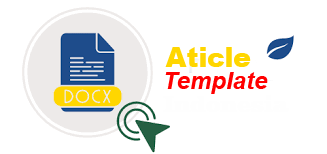Clustering of the Best Senior High Schools in Serdang Bedagai Regency Using the K-Means Method
DOI:
https://doi.org/10.30865/json.v6i4.8669Keywords:
K-Means, Clustering, Senior High School, Davies-Bouldin Index, Serdang BedagaiAbstract
This study aims to cluster the best Senior High Schools (SMA) in Serdang Bedagai Regency using the K-Means method. Five evaluation indicators were used in the clustering process: accreditation, school status, number of teachers, achievements, and facilities. A total of 41 schools were analyzed using a non-hierarchical approach, with the optimal number of clusters determined through the Elbow Method, resulting in three groups: excellent, good, and fair. Data normalization was performed using the Min-Max method to ensure equal scaling among variables. The clustering results using the K-Means algorithm formed three clusters that represent the quality of schools based on transformed numerical data. The K-Means method proved capable of providing a general overview of school quality grouping, which can serve as a basis for policy-making to improve the quality of education in the region.
References
Nurdin, Bustami, Rini Meiyanti, Amalia Fahada, and Marleni, “Application of the K-Means Method for Clustering Capture Fisheries Products in North Aceh with A Data Mining Approach,” Journal of Advanced Zoology, vol. 44, no. 4, pp. 39–49, Oct. 2023, doi: 10.17762/JAZ.V44I4.1358.
N. Nurahman, A. Purwanto, and S. Mulyanto, “Klasterisasi Sekolah Menggunakan Algoritma K-Means berdasarkan Fasilitas, Pendidik, dan Tenaga Pendidik,” MATRIK?: Jurnal Manajemen, Teknik Informatika dan Rekayasa Komputer, vol. 21, no. 2, pp. 337–350, Mar. 2022, doi: 10.30812/matrik.v21i2.1411.
R. Iman, B. Rahmat, and A. Junaidi, “Implementasi Algoritma K-Means dan Knearest Neighbors (KNN) Untuk Identifikasi Penyakit Tuberkulosis Pada Paru-Paru,” Repeater?: Publikasi Teknik Informatika dan Jaringan, vol. 2, no. 3, pp. 12–25, Jun. 2024, doi: 10.62951/repeater.v2i3.77.
Nurdin, Bustami, R. Meiyanti, and A. Fahada, “Clustering Types Of Capture Fisheries Products Using The K-Means Clustering,” J Theor Appl Inf Technol, vol. 15, no. 17, 2024, [Online]. Available: www.jatit.org
D. A. Manalu and G. Gunadi, “Implementasi Metode Data Mining K-Means Clustering Terhadap Data Pembayaran Transaksi Menggunakan Bahasa Pemrograman Python Pada Cv Digital Dimensi,” Infotech: Journal of Technology Information, vol. 8, no. 1, pp. 43–54, Jun. 2022, doi: 10.37365/jti.v8i1.131.
D. Oktario Dacwanda and Y. Nataliani, “Implementasi k-Means Clustering untuk Analisis Nilai Akademik Siswa Berdasarkan Nilai Pengetahuan dan Keterampilan,” AITI: Jurnal Teknologi Informasi, vol. 18, no. Agustus, pp. 125–138, 2021.
S. Kurniawan, A. M. Siregar, and H. Y. Novita, “Penerapan Algoritma K-Means dan Fuzzy C-Means Dalam Mengelompokan Prestasi Siswa Berdasarkan Nilai Akademik,” vol. IV, no. 1, 2023.
N. Nurahman, A. Purwanto, and S. Mulyanto, “Klasterisasi Sekolah Menggunakan Algoritma K-Means berdasarkan Fasilitas, Pendidik, dan Tenaga Pendidik,” MATRIK?: Jurnal Manajemen, Teknik Informatika dan Rekayasa Komputer, vol. 21, no. 2, pp. 337–350, Mar. 2022, doi: 10.30812/matrik.v21i2.1411.
Hanniva, A. Kurnia, S. Rahardiantoro, and A. A. Mattjik, “Penggerombolan Kabupaten/Kota di Indonesia Berdasarkan Indikator Indeks Pembangunan Manusia Menggunakan Metode K-Means dan Fuzzy C-Means,” Xplore: Journal of Statistics, vol. 11, no. 1, pp. 36–47, Jan. 2022, doi: 10.29244/xplore.v11i1.855.
Salamah, D. Abdullah, and Nurdin, “Comparative Analysis of K-Means and K-Medoids to Determine Study Programs,” International Journal of Engineering, Science and Information Technology, vol. 5, no. 1, pp. 167–176, Dec. 2024, doi: 10.52088/ijesty.v5i1.673.
T. Salsabila, N. Nurdin, and S. Retno, “Comparison of K-Medoids and K-Means Result for Regional Clustering of Capture Fisheries in Aceh Province,” International Journal of Engineering, Science and Information Technology, vol. 5, no. 2, pp. 282–289, Mar. 2025, doi: 10.52088/ijesty.v5i2.829.
L. S. Riza, R. A. Rosdiyana, A. Wahyudin, and A. R. Pérez, “The k-means algorithm for generating sets of items in educational assessment,” Indonesian Journal of Science and Technology, vol. 6, no. 1, pp. 93–100, 2021, doi: 10.17509/ijost.v6i1.31523.
M. Fikry et al., “Data Mining for Processing of Research and Community Service by Lecturer Using Decision Tree Method,” 2020.
N. Nurdin and D. Astika, “Penerapan Data Mining Untuk Menganalisis Penjualan Barang Dengan Menggunakan Metode Apriori Pada Supermarket Sejahtera Lhokseumawe,” TECHSI - Jurnal Teknik Informatika, vol. 7, no. 1, pp. 132–155, 2015, doi: 10.29103/TECHSI.V7I1.184.
N. Nurdin, M. Faisal and Z. Fitri, “Information and Communication Technology Competencies Clustering for students for Vocational High School Students Using K-Means Clustering Algorithm,” International Journal of Engineering, Science and Information Technology 2022, doi: 10.52088/ijesty.v1i4.318.
N. K. Zuhal, “Study Comparison K-Means Clustering Dengan Algoritma Hierarchical Clustering.” Accessed: Dec. 14, 2024. [Online]. Available: https://proceeding.unpkediri.ac.id/index.php/stains/article/view/1495/1220
N. Syahfitri, E. Budianita, A. Nazir, and I. Afrianty, “KLIK: Kajian Ilmiah Informatika dan Komputer Pengelompokan Produk Berdasarkan Data Persediaan Barang Menggunakan Metode Elbow dan K-Medoid,” Media Online, vol. 4, no. 3, pp. 1668–1675, 2023, doi: 10.30865/klik.v4i3.1525.
F. Handayani, “Aplikasi Data Mining Menggunakan Algoritma K-Means Clustering untuk Mengelompokan Mahasiswa Berdasarkan Gaya Belajar.” Accessed: Dec. 13, 2024. [Online]. Available: https://ojs.unikom.ac.id/index.php/jati/article/view/6733/2965
Downloads
Published
How to Cite
Issue
Section
License
Copyright (c) 2025 Tania Annisa Siagian, Nurdin Nurdin, Munirul Ula

This work is licensed under a Creative Commons Attribution 4.0 International License.

This work is licensed under a Creative Commons Attribution 4.0 International License
Authors who publish with this journal agree to the following terms:
- Authors retain copyright and grant the journal right of first publication with the work simultaneously licensed under Creative Commons Attribution 4.0 International License that allows others to share the work with an acknowledgment of the work's authorship and initial publication in this journal.
- Authors are able to enter into separate, additional contractual arrangements for the non-exclusive distribution of the journal's published version of the work (e.g., post it to an institutional repository or publish it in a book), with an acknowledgment of its initial publication in this journal.
- Authors are permitted and encouraged to post their work online (e.g., in institutional repositories or on their website) prior to and during the submission process, as it can lead to productive exchanges, as well as earlier and greater citation of published work (Refer to The Effect of Open Access).




